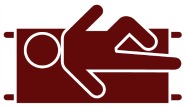Full disclosure: I drink caffeine. I have about two cups of coffee in the morning and a cup of tea in the afternoon. When I'm working 12 hour shifts in the Emergency Department, I also drink a Hi-Ball or Starbucks energy drink on the way home.
Big deal, right? Well, these days energy drinks are in the spotlight because -- well because they are popular -- and someone is suing because their kid died of caffeine poisoning.
While the headlines say "When Caffeine Kills" in most cases it is doubtful that the energy drinks, or coffee or tea is really doing the killing. However, according to MSNBC: "the parents of Anais Fournier of Hagerstown, Md., sued the company that makes Monster Energy Drinks, saying caffeine in the drinks killed the 14-year-old girl. The autopsy report attributed her death to “cardiac arrhythmia due to caffeine toxicity.”
The young girl had consumed two 24 oz Monster energy drinks. In case you forgot your weights and measures, 16 ounces is a pint. Think about a quart of milk. She drank TWO of those. That's not normal human behavior. Moreover, you shouldn't be letting your 14 year old .... oh nevermind.
Let's ignore the merits of the lawsuit in favor of pharmacology. Each 16 oz Hi-Ball contains 160 mg of caffeine. According to the caffeine content database, that's about in the middle of the pack between energy drinks and coffee. Coffee has about 100 mg for brewed and 120 for K-Cup coffee. Energy drinks can have as much as 300 mg, but most seem to be in the 200 range. Monster -- the murderer in questions is on the high end at 240. (Some obscure drinks have over 300).
That's still just equal to two cups of coffee. Of course, it is easier to drink an energy drink FASTER than a hot cup of coffee, thus your dose over time is higher. You could plausibly down four pints of Monster in a few minutes - if you have no sense of taste or will to live. Or you could throw back two dozen NoDoz tablets. Either way, the results won't be fun.
Caffeine, after all is a drug - a central nervous system stimulant. It is used in medicine and as the engine of the Industrial Revolution, the Enlightenment and all that came after. It is the most popular psychoactive drug in the world.
Any drug, however, has the potential for abuse.
MSBC's article on caffeine points out that emergency room visits related to energy drinks are on the rise -- likely because they are becoming more popular. We see people with palpitations and anxiety, but rarely any life threatening conditions.
However, the confounding factor there is that many people mix their Red Bull with liquor, so it may be hard to suss out the real culprit.
The Food and Drug Administration is also looking into claims that five people have died from heart attacks related to energy drinks. That, combined with the lawsuit, is enough to hang a story on.
However, the reports were over an eight year period - less than one a year by my count -- and anyone can file a report claiming harm from anything. They don't have to prove it. Any two events can be thrown together in a complaint. So far there has been no causal link established in any of the cases, according to the FDA spokesman and other products -- including alcohol or street drugs -- could also be to blame.
That said, caffeine is a stimulant. It makes your heart go faster. I was teaching lab techs how to do 12 lead EKGs the first night I worked graveyard, so I've seen the PVCs that too much coffee can cause. Not only does it make your heart rate increase, and your blood pressure higher, it can also knock you into an arrythmia.
If you have a heart condition, stimulating your heart is probably not a great idea. According to an article in the American Journal of Clinical Nutrition.
There is a consensus that caffeine does not promote ventricular arrhythmia, except in extraordinary circumstances and at a very high dose. One example of such an extraordinary circumstance is the case of a 25-y-old woman with preexisting prolapse of the mitral valve who drank 50 mL of a “natural energy” guarana health drink that contained the same amount of caffeine as 8 cups of strong coffee. She developed intractable ventricular fibrillation and died (4). But such events are rare; most cardiac patients tolerate normal amounts of caffeine without difficulty (5).The same article notes that researchers failed to find an association between caffeine and atrial fibrillation and flutter. On the other hand, Afib and flutter in the same study were correlated with alcohol consumption. Again, remember that it is popular to mix energy drinks with alcohol.
Moreover, there is all the other stuff they put in energy drinks too. Taurine and Guarana and B-vitamins.
Because kids may have undetected heart defects and because their bodies are still developing, probably not a good idea to let them pound three pints of concentrated stimulants.


No comments:
Post a Comment